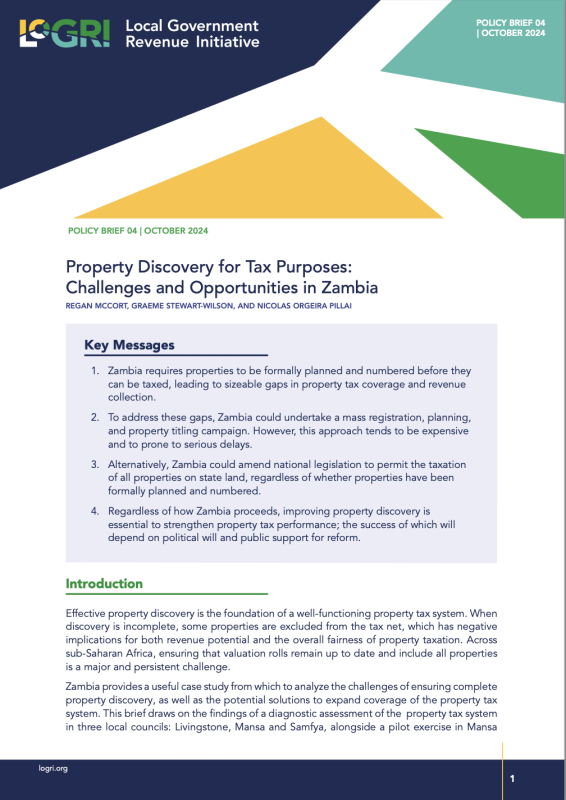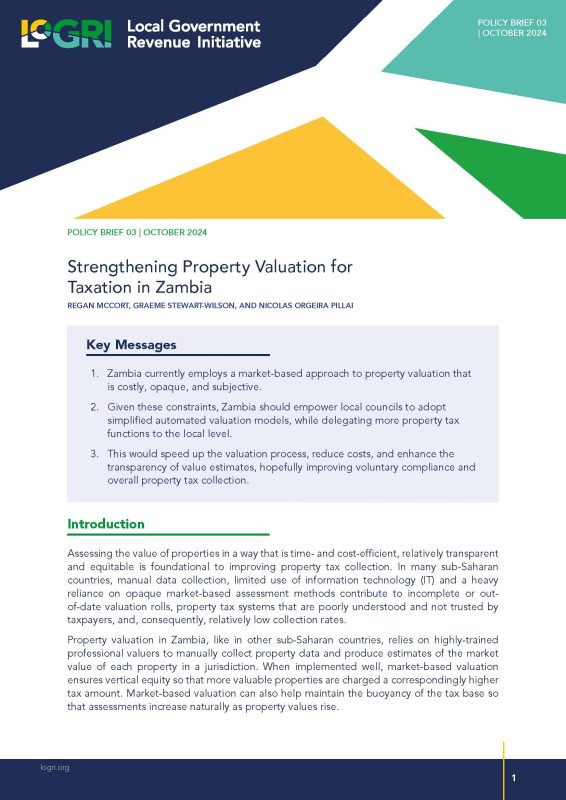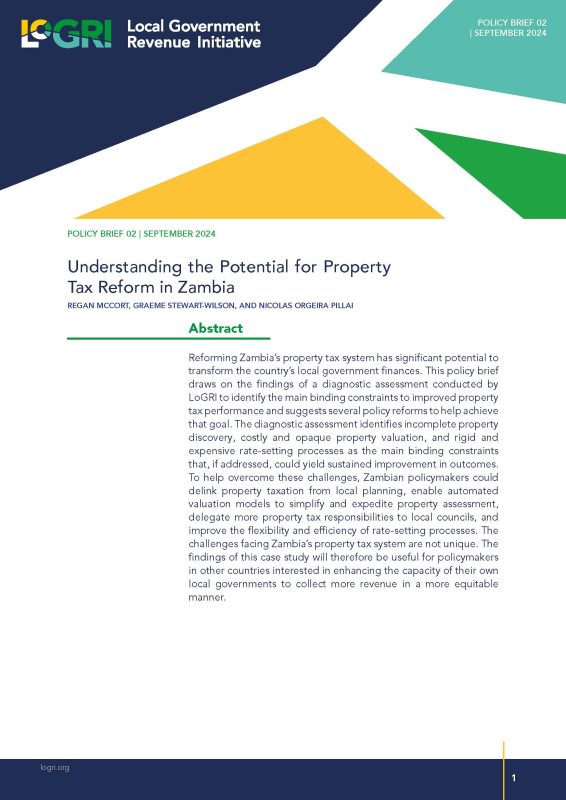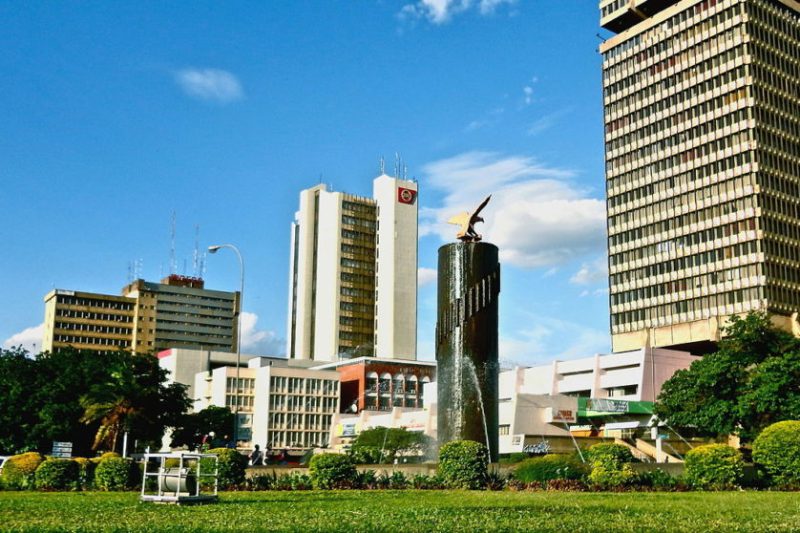Thematic Areas
Property tax in Zambia, known as “council rates,” is collected by local councils under the Rating Act of 2018, which outlines guidelines for property identification, assessment, and rate setting. Local councils tax properties on state land within their domains, excluding customary land which is not subject to taxation. Local councils are also responsible for property identification as well as rate setting under supervision from the centrally appointed Rating Valuation Tribunal.
Properties in Zambia only become eligible for taxation once they have been appropriately planned by the local council and have been issued plot numbers by the Ministry of Lands and Natural Resources (MoLNR). The Department of Valuation and Property Management (DVPM), under the Ministry of Infrastructure, Housing, and Urban Development, conducts valuations, with only certified surveyors permitted to assess properties for tax purposes. These valuations help councils set rates in collaboration with the Tribunal. The Ministry of Local Government and Rural Development (MLGRD) oversees local authorities, formulating policies and monitoring council operations. Local councils are then responsible for the rest of the cycle, including billing, collection, and enforcement.
Although Zambia has a relatively well-functioning property tax system, especially in larger city councils, it faces challenges that limit its revenue potential. Many properties are exempt from taxation due to their location on customary land or lack of formal planning and numbering, narrowing the tax base and fostering perceptions of inequity. Current property valuation practices are also opaque, expensive, and time-consuming. Moreover, the centralized processes for setting tax rates and adjudicating appeals are relatively inflexible, inefficient, and expensive for councils.
In response, the Ministry of Local Government has begun a review to address these issues, considering reforms like easing property eligibility criteria, adopting automated valuation methods, and granting more autonomy to local councils for certain parts of the tax system.
Learn more:
- Franzsen, Kabinga, and Kasese (2017) : “Chapter 30 : Zambia” in Property Tax in Africa https://www.lincolninst.edu/publications/books/property-tax-in-africa
Featured Projects


Status: Completed
Property Tax Reform in Zambia: Challenges and Opportunities
Upcoming Publications
Research & Publications



Related Media


Photo credit to Africa Adventures

